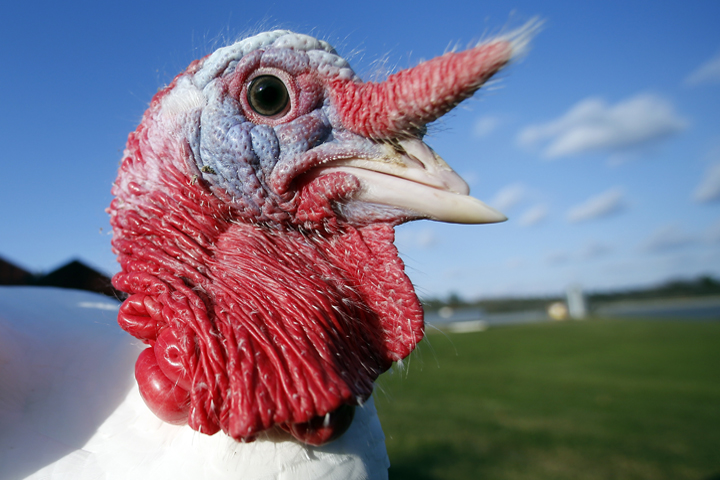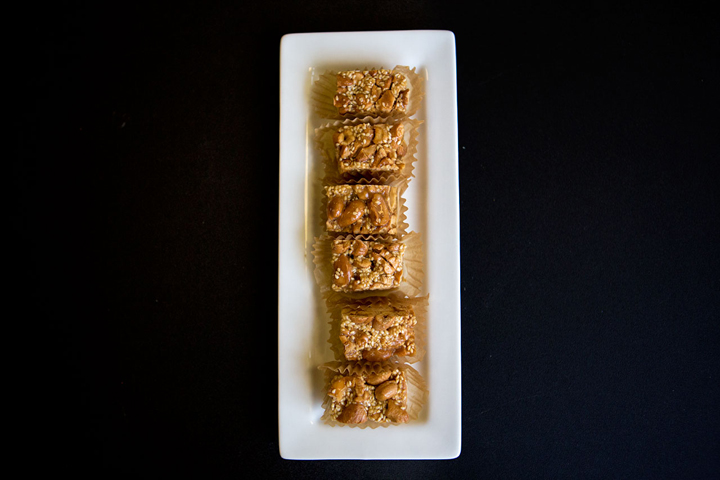Advertisement
Don’t Worry: There’s Still Time To Make Your Thanksgiving A Success
With guest host Jane Clayson.
We’ll talk turkey and all the sides. Top chefs join us to answer your Thanksgiving questions.

Thanksgiving: Steeped in tradition, surrounded by family, and for some of us, a marathon of cooking. Do you brine, grill, deep fry the turkey? Fresh or canned cranberries? Stuffing in the bird or out? How do you fix mistakes? What can you make ahead of time? What should you make for vegetarians? Or the gluten-free? It is easy to feel overwhelmed. Three nationally renowned chefs are here to answer all your questions—from the bird to the vegetables to the drinks to the leftovers. This hour, On Point: All your Thanksgiving food questions answered by our top chefs.
-- Jane Clayson
Guests
Bridget Lancaster, executive food editor for New Media, Television and Radio at America's Test Kitchen. Lead instructor for the America's Test Kitchen Cooking School.
Barton Seaver, chef. Director of the Sustainable Seafood and Health Initiative at the Center for Health and the Global Environment at the Harvard School of Public Health. Author of "For Cod and Country" and "Where There's Smoke." (@bartonseaver)
Ana Sortun, chef and owner of the Cambridge, Mass. restaurants Oleana and Sofra. Co-owner of the Somerville restaurant Sarma. Winner of the 2005 James Beard Award for Best Chef in the Northeast.
From The Reading List
Cook's Illustrated: The Experts' Guide To Thanksgiving — "Salting turkey in advance is one way to season the meat and keep it juicy. When salt is applied to raw poultry, juices inside are drawn to the surface. The salt then dissolves in the exuded liquid, forming a brine that is eventually reabsorbed by the poultry. The salt changes the structure of the muscle proteins, allowing them to hold on to more of their own natural juices. Salting requires time, but it won't thwart the goal of crispy skin. We prefer to use kosher salt for salting because it's easier to distribute the salt evenly."
Charleston Gazette: Culinary star squeezes in a few days here at home — "Lancaster credits her early years in the Mountain State with fostering an interest in food that led to a high-profile career as an original cast member of 'America’s Test Kitchen' and 'Cook’s Country,' half-hour cooking shows that air on PBS stations nationwide, including West Virginia Public Broadcasting. 'My mom made everything from scratch — breads, sauces. I didn’t actually know you could buy jarred tomato sauce for pasta until I was older. So between my mom and her cooking and my dad and his garden, I was hooked at a really young age,' she said."
Advertisement
New York Times: A Change in the Kitchen — "Hand-wringing about the low status and low numbers of women in the culinary world has been constant since professional cooking changed from a menial trade to a respectable career, beginning in the 1980s. (Today, the lack of gender diversity is not the only concern: All groups except for white men are underrepresented at the top of the profession.) For decades, chefs of both sexes believed that inequality was inevitable. The same stereotypes used to keep women out of armed combat, off the judicial bench and out of medical school were invoked to explain why women didn’t stick it out in the kitchen. The work, it was said, is too physically demanding and psychologically grueling; the hours were too incompatible with family life."
See Our Blog For Original Thanksgiving Recipes From Our Guests

This program aired on November 25, 2014.